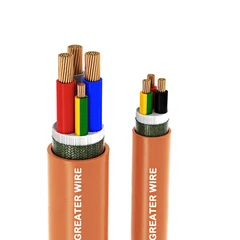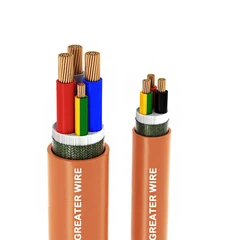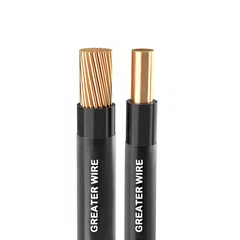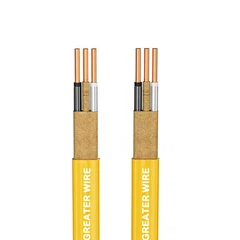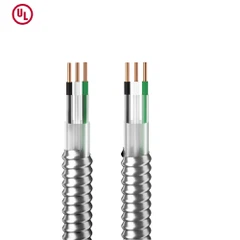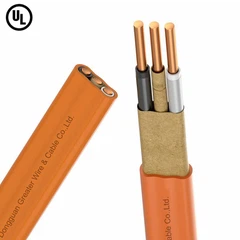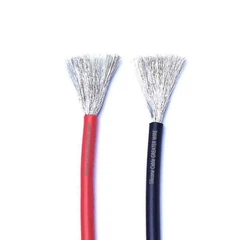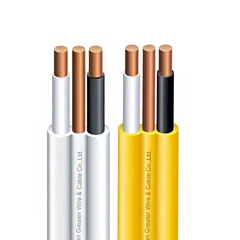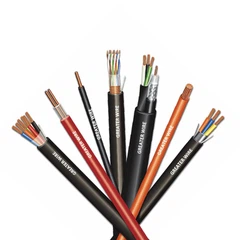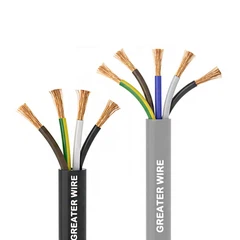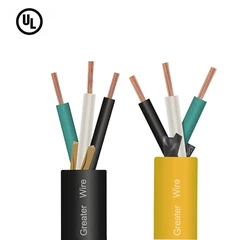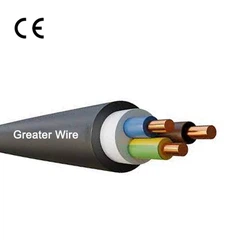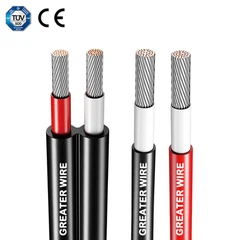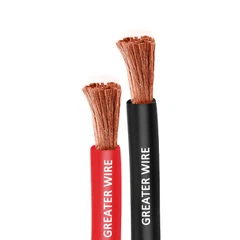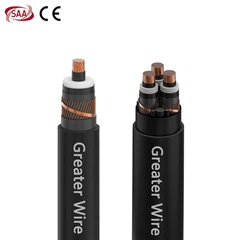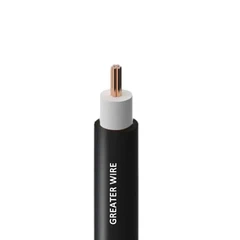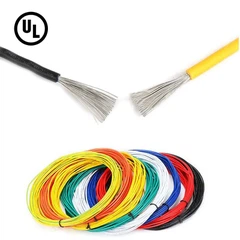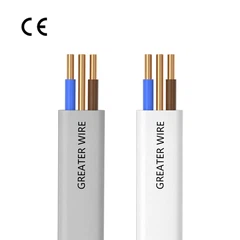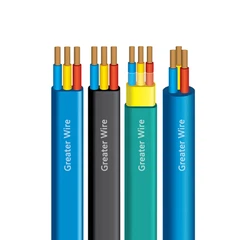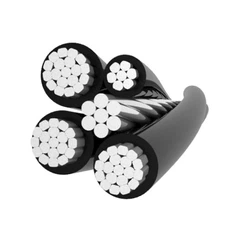When talking about modern building wiring, few cables are as widely used as the Twin and Earth Cable. Whether in homes, offices, or commercial buildings, this cable type-often also referred to as TPS Cable (Thermoplastic Sheathed Cable)-is a standard solution for electrical installations in many regions, especially in the UK, Australia, and New Zealand.
However, electricians, project managers, and even homeowners often raise a common question: "Is a Twin and Earth Cable classed as double insulated?" To answer this, we must carefully look at the cable's structure, its insulation system, the function of that insulation, and how to select the right type for practical applications.
Structural Overview of Twin and Earth Cable
The Twin and Earth Cable, also widely known as Twin & Earth or TPS Cable(It is usually called this in Australia), is one of the most common electrical cables used in residential, commercial, and light industrial wiring systems. Its name perfectly reflects its construction:
- Conductor (Core):
At the center is the copper (or sometimes aluminum) conductor, which carries the electrical current.
- Primary Insulation:
Surrounding the conductor is the first layer of insulation, usually made from PVC or XLPE, designed to provide electrical separation and prevent direct contact with the live conductor.
- Secondary (Outer) Insulation:
A second, thicker insulation layer is applied over the primary insulation. This acts as an additional protective barrier, ensuring safety even if the first layer is damaged.
- Color Coding:
The insulation layers are often color-coded to identify live, neutral, and sometimes earth conductors, helping installers connect safely and correctly.
In a typical Twin and Earth Cable, the two insulated cores serve as the live and neutral conductors, while the earth conductor provides essential grounding protection. The outer sheath, usually made from PVC or LSZH (Low Smoke Zero Halogen), enhances the cable's mechanical strength, fire resistance, and environmental durability.
The flat shape of the cable is another advantage, making it easier to route along walls, ceilings, or under floors. This combination of simplicity, flexibility, and reliability has made Twin and Earth Cable a staple in lighting circuits, socket outlets, and small appliance connections.

What is double insulated wire
Double Insulated Cable is designed to provide enhanced protection in electrical systems by incorporating two independent layers of insulation instead of relying on a separate earth conductor. This feature makes it particularly valuable in environments where safety is critical, as even if the outer insulation is damaged, the inner insulation still prevents electrical shock. Because of this built-in safety, double insulated cables are widely used in portable electrical devices, domestic appliances, and power tools where a separate earth wire may not be practical.
Another key advantage is compliance with international safety standards, ensuring that these cables are approved for use in both residential and commercial installations. They are also appreciated for their versatility, being suitable in environments where mobility, flexibility, and compactness are important. By reducing reliance on grounding while still maintaining safety, double insulated cables allow engineers and manufacturers to design lighter, safer, and more cost-effective products without compromising protection.
Classification of Insulation: Is Twin and Earth Cable Double Insulated?
So, the key question: Is a Twin and Earth Cable classed as double insulated? The answer is no. While Twin and Earth Cable has insulation layers, it does not fall under the strict definition of "double insulation." Double insulated cables typically have two completely independent layers of insulation around each conductor, whereas Twin and Earth Cable uses a single layer of insulation around the live and neutral conductors combined with an overall sheath.
That said, Twin and Earth Cables come with different insulation types depending on the material used. The most common options include:
- PVC Insulation (Polyvinyl Chloride): The most widely used, offering flexibility and cost-effectiveness for general household wiring.
- XLPE Insulation (Cross-Linked Polyethylene): Provides higher thermal resistance and better mechanical strength, suitable for circuits carrying heavier loads.
- LSZH Insulation (Low Smoke Zero Halogen): A premium choice that produces minimal smoke and no toxic halogen gases in case of fire, ideal for hospitals, schools, airports, and public spaces.
Each insulation type gives Twin and Earth Cable its unique performance characteristics, making it critical to choose the right type for the right environment.
Functional Role and Significance of Insulation in Twin and Earth Cable
The insulation layer of a cable is much more than a simple covering; it is the first line of defense for safety and performance. In the case of Twin and Earth Cable, insulation ensures that electricity flows only along the conductor and not into surrounding materials, thus preventing short circuits and reducing the risk of electric shock.
Insulation also provides mechanical protection, resisting abrasion, bending, and stress during installation and daily use. Moreover, the choice of insulation directly affects fire safety. For example, LSZH insulation significantly reduces the emission of smoke and toxic gases during a fire, safeguarding both human lives and valuable equipment.
In short, insulation is the foundation of electrical safety. It transforms a simple piece of copper into a dependable and efficient conductor suitable for modern wiring needs.
Practical Considerations in Selecting Appropriate Insulation Types
Selecting the correct insulation type depends largely on the intended application and safety requirements. For general residential lighting and power outlets, PVC insulated Twin and Earth Cable is often sufficient, balancing affordability with performance.
In environments where circuits are expected to carry higher current or operate under higher temperatures, XLPE insulated Twin and Earth Cable is the better choice, offering superior heat resistance and durability.
For sensitive areas where fire safety is paramount-such as hospitals, shopping centers, schools, or transportation hubs-LSZH insulated Twin and Earth Cable is strongly recommended. Its ability to limit harmful emissions during fire incidents can make a critical difference in evacuation and rescue operations.
In simple terms:
- PVC insulation → Residential use, cost-effective and flexible.
- XLPE insulation → Commercial/industrial settings, higher loads and durability.
- LSZH insulation → Public spaces, maximum safety in fire conditions.
Choosing wisely ensures not only system reliability but also long-term safety.
Manufacturer Advantages: Why Choose Dongguan Greater Wire & Cable Co., Ltd.?
From the analysis above, it's clear that insulation type is one of the most important factors in determining the safety, durability, and suitability of Twin and Earth Cable. But just as critical as the insulation itself is choosing the right manufacturer.
Dongguan Greater Wire & Cable Co., Ltd. is your trusted partner in high-quality cable solutions. With over 50,000 square meters of modern manufacturing facilities and advanced automated production equipment, we deliver cables that meet and exceed the strictest international standards, including IEC, AS/NZS, and BS certifications.
Our product range includes Twin and Earth Cables with PVC, XLPE, and LSZH insulation options, allowing us to serve diverse applications-from residential wiring to high-demand commercial and industrial projects. We also offer customization services for cable color, length, and packaging, ensuring that our customers get exactly what they need.
With over 30 years of expertise, more than 50 global certifications, fast delivery, and 24/7 customer service, Greater Wire & Cable has become a trusted choice for clients worldwide. Choosing us means choosing cables that combine safety, performance, and reliability in every meter.
Contact Us
Dongguan Greater Wire & Cable Co., Ltd.
Tel/WhatsApp/Wechat: +86 135 1078 4550 / +86 136 6257 9592
Email: manager01@greaterwire.com

